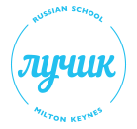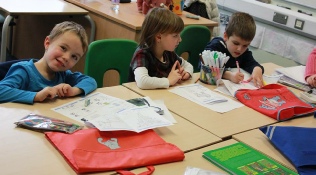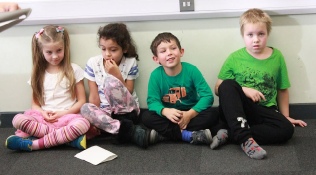
Русский


English


Copyright © 2013-
LEGAL INFO




OUR WORK
GET IN TOUCH
07702724764
info@russianschoolmk.co.uk
OUR CLASSES
ABOUT


Reading
- Master the deliberate, correct, fluent and expressive reading
- Build and enlarge reader’s scope of interests, memories and experience of independent reading activity;
- Improve various aspects of speech activity, ability to hold a conversation, read expressively and speak well and improvise
- Develop artistic, creative and cognitive skills, emotional responsiveness while reading art literature
- Form aesthetic approach to the art of speech
- Develop respect for Russian culture and interest in reading in Russian, the expansion of moral-
aesthetic experience of the students.
Writing
- Possession of ability to correctly read and write.
- Development of initial knowledge about the vocabulary, phonetics, grammar of the Russian language
- Learning of graphics, orthography – spelling
- Ability to competently express your thoughts through writing
Speech Development
- Development of speech, thinking, imagination, intuition and "feeling of language”
- Education of emotional-
holistic approach to the Russian language - Revival of cognitive interest for the Russian language
- Aspiration for improving Russian speech
- Enriching the Russian vocabulary in various fields of art, science and technics
- Fostering the formulation of the best moral qualities, cultural behaviour, appropriate views on the world around us
Language in Practice
- To get children feel free to express themselves.. and be comfortable performing/talking in front of others.
- Develop their knowledge about the world: numbers, months, countries, nationalities, animals, food etc. also work on developing tricky sounds.

Main subjects and course objectives




RUSSIAN SCHOOL EXPECTATIONS
Expected achievements for each age group and level by the end of the year

- Extended vocabulary
- Ability to address to the teachers and classmates
- Enriched passive vocabulary (remember new words , but not use them in speech yet); start using more familiar words in speech
- Poems learnt by heart
- Develop their world knowledge in Russian language on various topics such as using the standard classes, games and exercises as well as different experiments
3-4 YEARS OLD CLASS
- Enhanced culture of speech
- Improved accuracy, consistency and expressiveness of speech
- Ability solving puzzles, discussing characters in a short story, composing own stories.
- Successful progression through the school’s curriculum .
- Speech development -
spoken and written.
5-8 YEARS OLD CLASS
- Analysis, synthesis, comparison, generalization, classification of objects
- Orientation in space
- Enriched, strengthen, and sharpen their vocabulary
- Ability to make a story and select the story’s most important facts
- Ability to select the right words to describe the subject and highlight certain qualities
- Ability to make up a story on the proposed topic, according to the specifics of the genre;
- Identification of the main characters in a story, expressing opinion on them;
- Ability to recite texts, without any supporting questions by teachers
- Choosing the right definitions (adjective), naming the actions (verb) in different types
- Clearly pronouncing the words with a natural tone and intonation
9-12 YEARS OLD CLASS

The programme for entry level children 4-6 years old is structured in three different lessons for the development of the basic knowledge of Russian language



- Learning to read in different ways including reading, discussing, listening, presenting and analysing.
- Objective:
- Increased vocabulary
- Ability to analyse, draw conclusions, evaluate and make opinions when working with text.
Почитай-ка(Reading)
- Learning to present the Russian Alphabet nicely and correctly.
- Objective:
- Knowledge of the Russian alphabet
- Ability to write simple words in a nice & neat handwriting.
АБВГД-ka (Alphabet)
- Learning a variety of interesting facts and building knowledge of Russian culture.
- Objective:
- By the end of the school year, entry level children are expected to work in a team, explain and demonstrate understanding of the learned subjects in Russian.
Узнай-ка (Learn the world)
Russian School in Milton Keynes offers customised language programs for 3 to 12 years old
children. Whether you are looking to get your child started on their second language,
need a level of improvement of their current knowledge of Russian or a preparation work for
a certain perspective or if your child just loves learning additional languages, our professional
teachers can help your child reach their Russian language goals.
Offering 7 classes for different age groups and levels

Homework is one of the key milestones for achieving the level objectives
In Milton Keynes Russian School children are given to prepare their homework every week.
It can vary between a very basic and simple task such as colouring in the youngest class to a composition writing for older students.
Although we do appreciate that children attending the Russian School have other homework to do for their regular primary or secondary school, timely completing homework for the Russian School will help a child in developing the Russian language during the week, to pass the tests during the school year and to generally become better at understanding, talking and writing Russian. In addition it provides a great opportunity for parents to communicate with their children in Russian which is especially important for children in mixed families or to older children, whose native language is not Russian.
We trust all parents will appreciate our approach and ensure that the homework is done in a timely manner for each week. It is preferred for the homework to be done on weekdays after regular school. The main tasks can be split into small ones, for example, if the homework consists of several components such as drawing, memorising and writing, you could effectively split the work into various segments and let your child complete it, unit by unit, throughout the week without spending too much time on it.
Learning Objectives
Lesson Activities
- Games aimed at developing children’s imagination. Talking about various objects in a form of discussion between children.
- Word games: ie. eatable / not eatable, “guess a word" -
one child thinks of a word, others need to ask questions to guess - Describing picture in the given short time
- "Show and tell" one of favourite activities, in which children get to talk about something they have brought in from home.
- Rhythmic exercises for the tongue and the mouth to improve pronunciation
Russian Classes for Children
3-16 Years Old

Toddler development
Class for 1-
Learning and speech development, musical perception with sense of rhythm through games and fun for the very little ones.


Stepashka
Class for 3-
Integrated learning through games with with elements of moving activities


Cheburashka
Class for 7-
Russian language lessons, Russian speech development and establishment, acquaintance with the surrounding environment in Russian
Buratino
Class for 9-
Russian language development with basics of Russian grammar with elements of history and geography as well as Russian culture & classics
Chipollino
Class for 11-
Advanced Russian language development with more in depth grammar, and elements of history and geography as well as Russian culture & classics





Kolobok
Class for 5-
Learning through fun & games, development of speech, logical thinking, attention, persistence and memory. Acquaintance with sounds and numbers. Preparation for learning writing, socialisation in Russian speaking environment



Gromozeka
Class for 13-

Development of Russian language and speech through familiarisation with new facts of Russian language, Russian history, geography and culture. Lexical meaning of words and expressions, building sentences and phrases for effective expression of thoughts.
Preparation for GCSE exams